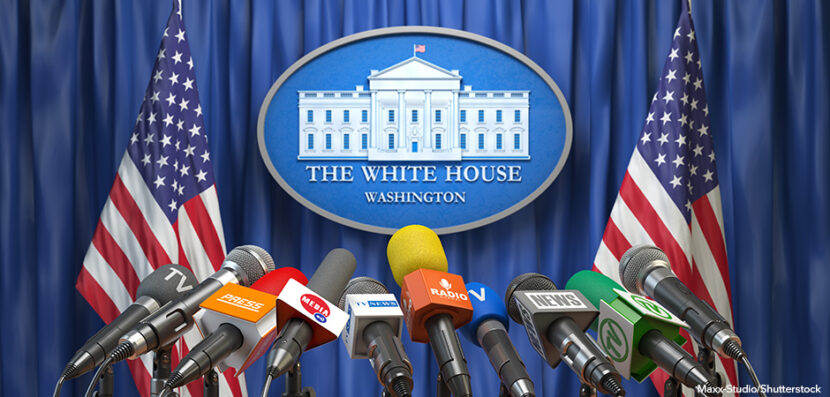Biden Speaks Out on Voting Rights
You’ve learned in your U.S. history class about Jim Crow-era voting discrimination techniques: poll taxes, literacy tests, and other measures to restrict African Americans from having equal access to the ballot. Some people argue that new state regulations make it more difficult for people to vote. Others say that these restrictions are unconstitutional because they make it more difficult for some Americans to vote than others. Supporters of these voting regulations say the restrictions prevent illegal voting (known as voter fraud). Last week, in a speech in Atlanta, Georgia, President Biden spoke out against these restrictions. Here, Election Central takes a closer look.
Background
Right now, Democrats in the Senate are trying to pass two bills: the Freedom to Vote Act and the John Lewis Voting Rights Act. The Freedom to Vote Act would set a national standard for voting access, rather than leaving it up to each state to determine its own rules. For example, all states would be required to offer at least two weeks of early voting at accessible polling places and no-excuse vote by mail for every eligible voter. (This means that voters would not need to provide a reason for voting by mail). It would also restore voting rights to people who have been incarcerated, limit the length of lines at polling places, ban partisan gerrymandering, and more.
The John Lewis Voting Rights Act would require voting processes to be reviewed by the federal government to ensure that they are not discriminating against minority populations. It would also require greater transparency in voting laws and changes and allow minority voters greater ability to challenge instances of discrimination in court.
Senate Republicans disagree with these bills. They say these changes would expand the opportunity for voter fraud. Republicans have been using the filibuster procedure to prevent a vote on these bills from taking place. Modern filibusters do not require senators to continuously debate on the Senate floor to prevent a vote. The Senate requires 60 votes to end debate on an issue. This is called cloture.
What Did Biden Say?
In his speech, Biden criticized Senate Republicans for using the filibuster to prevent a vote on these bills. He said that both of these practices–voter restriction and using the filibuster to protect it–are eroding American democracy. He expressed his support for getting rid of the filibuster, at least temporarily, to vote on these bills. He reminded senators that they will be remembered for where they stand on the issue of equal voting rights.
What Will Happen Next?
Biden suggested eliminating the filibuster, at least when focused on civil rights bills, so that there can be a vote on these bills in the Senate. But changing the Senate rules would require a majority vote. Because the Senate is so closely divided, it’s unlikely that this would happen. Even so, Senate Majority Leader Chuck Schumer has said that he plans to call for a vote on the two bills soon anyway. If its blocked, Schumer will have to decide whether or not to try for a temporary elimination of the filibuster. It only takes a few Democrats to join with Republicans to block a cloture vote and keep the legislative delay going.



